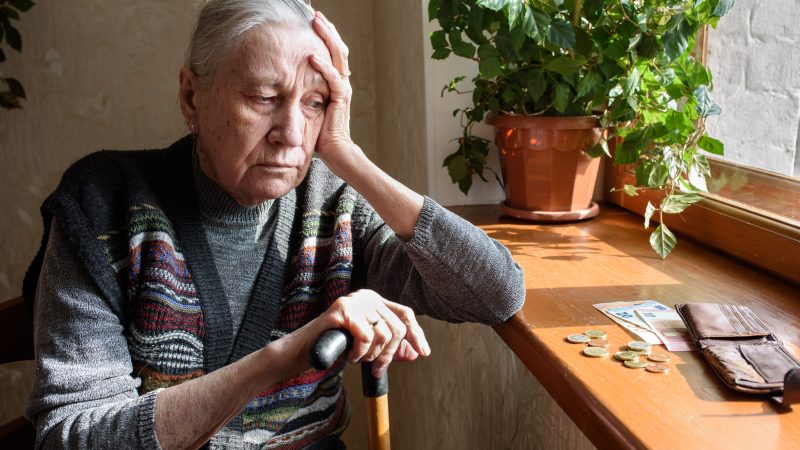
As last week’s results showed, the consequences of the government’s plans to cut benefits for disabled people are already being keenly felt.
With one year to go until Senedd elections in Wales, there is time still for us to change course.
Yet suggestions of another round of even tougher cuts later this year show the leadership has not yet understood what the electorate is telling us, and has been telling us for some time.
Wales bears the brunt
Wales has a proud industrial history from slate to steel and coal to chemicals. Much of this came at a price to the long-term health of workers. This legacy still affects our communities today.
With the highest poverty rates for disabled people in the UK, and significantly more people receiving PIP, changes to disability benefits will hit us in Wales particularly hard.
The First Minister has rightly come out and criticised them. In standing up for Wales by opposing these cuts, she will find an erstwhile ally in myself.
Dignity in well-paid work
Before becoming a Labour MP last summer, I was a secondary school teacher in Wrexham. I had also been the Welsh president of NASUWT, and an elected workplace rep since the age of 28.
I know that well-paying jobs with good working conditions bring stability and dignity to people’s lives.
This is true for many disabled people. Personal Independence Payments provide necessary recognition of the additional costs they face, and for many, is the lifeline that enables them to work.
Supporting people back into work
Sluggish productivity growth being the barrier to increasing living standards is one of the biggest challenges the government faces.
Powys, in which nearly two-thirds of my constituency lies, has the lowest productivity of all subregions in the whole of Britain.
Every single Welsh region has a productivity rate below the UK average. It follows that Wales has a lower income per person than every single English region bar the North East.
Meanwhile, more than nine million people in the UK are not actively looking for a job, the biggest single reason for which is long-term illness. This is patently unsustainable, but the government cannot, and should not, go about fixing this by further penalising the people who need the most help.
We need to offer progressive support to help people back into work, not strip it away from them further than the Conservatives already have.
Positives being consulted upon
I welcome the abolition of assessments for the most severely disabled every three years, the ‘Right to Try’, the record £1bn investment for helping people into work, and the proposals on Unemployment Insurance.
I support these reforms. But changes to PIP in the Green Paper will push so many into abject poverty. This is too steep a price to pay.
As such, I will be voting against these cuts.
Hundreds of thousands to lose their disability benefits
Narrowing eligibility criteria, through frankly alarming changes to the points scoring system (changes that are excluded from the consultation process), could strip payments from hundreds of thousands of disabled people across the UK.
These cuts will disproportionately impact Wales, which has around 275,000 PIP recipients – over 14% of the working age population.
7,367 of my own constituents in Montgomeryshire and Glyndŵr currently receive PIP.
Devotion to fiscal rules, at any price, is an albatross around Labour’s neck and will merely open the door to the far-right.
It has done so in Runcorn and in councils across England. It will likely do the same in next year’s Senedd elections.
Rejecting a fresh round of austerity
Politics is about choices and cuts in this area, introducing a fresh round of austerity, is not the answer.
I joined the party during the Osborne years, when Britain’s five richest families were worth more than the poorest 20% of the population.
The gap between the richest and the poorest continues to widen thanks to an inherently unfair tax system and a huge growth in asset prices.
Total wealth between the top and bottom 10% grew by 48% from 2011 to 2019, by 49% between the top and middle 10%.
Restoring faith in democracy
This is directly corrosive to faith in democracy. With an economy stacked against working class people, we should not be surprised when voters turn to radical solutions.
READ MORE: Runcorn blame game begins – why did Labour lose?
Instead of penalising the sick and the disabled, instead of tinkering around the fiscal edges, we need to offer voters a truly bold and transformative economic vision.
We should start by dropping austerity measures. We should then look at reforming our unfair tax system and tax those with the greatest wealth.
It is the only way we can actively reduce the inequality that makes constituents feel like the country simply does not work for them.
Taxing wealth not work
The bottom 10% of earners have an effective tax rate of 44% — more than twice as high as those in the top 0.01% (21%).
Capital Gains Tax, Inheritance Tax, Corporation Tax, and Stamp Duty were all designed to tax wealth. At a very minimum we should be looking at reforming these.
Scroll to keep reading the story below….
We should be bolder and go further. A modest 2% wealth tax on assets over £10 million would affect only the wealthiest 0.04% of the population, some 20,000-22,000 people. It could raise £24bn, dwarfing the savings the government seeks to make by cutting benefits.
Available alternatives to austerity
The alternatives to further austerity are open to us, but as a Labour and trade union movement we must forcefully make the argument for them.
If we fail to make and win these arguments, we not only risk consigning ourselves to a single term in office but losing our purpose as a party. We are a moral crusade, or we are nothing.
Subscribe here to our daily newsletter roundup of all things Labour – and follow us on Bluesky, WhatsApp, Threads, X or Facebook.
Read our coverage of the fallout from the 2025 local election results:
- Starmer: ‘Labour must go further and faster to deliver after Runcorn defeat’
- Runcorn blame game begins – why did Labour lose?
- ‘Labour has lost in Runcorn – here are the eight things the party should do now‘
- MPs who could lose their seat on Runcorn by-election swing to Reform
- ‘Results so far say one thing: voters think change isn’t coming fast enough’
- SHARE: If you have anything to share that we should be looking into or publishing about this story – or any other topic involving Labour– contact us (strictly anonymously if you wish) at [email protected].
- SUBSCRIBE: Sign up to LabourList’s morning email here for the best briefing on everything Labour, every weekday morning.
- DONATE: If you value our work, please chip in a few pounds a week and become one of our supporters, helping sustain and expand our coverage.
- PARTNER: If you or your organisation might be interested in partnering with us on sponsored events or projects, email [email protected].
- ADVERTISE: If your organisation would like to advertise or run sponsored pieces on LabourList‘s daily newsletter or website, contact our exclusive ad partners Total Politics at [email protected].





More from LabourList
Antonia Romeo appointed to lead civil service as new Cabinet Secretary
‘If Labour is serious about upskilling Britain, it must mobilise local businesses’
Stella Tsantekidou column: ‘What are we to make of the Labour Together scandal?’